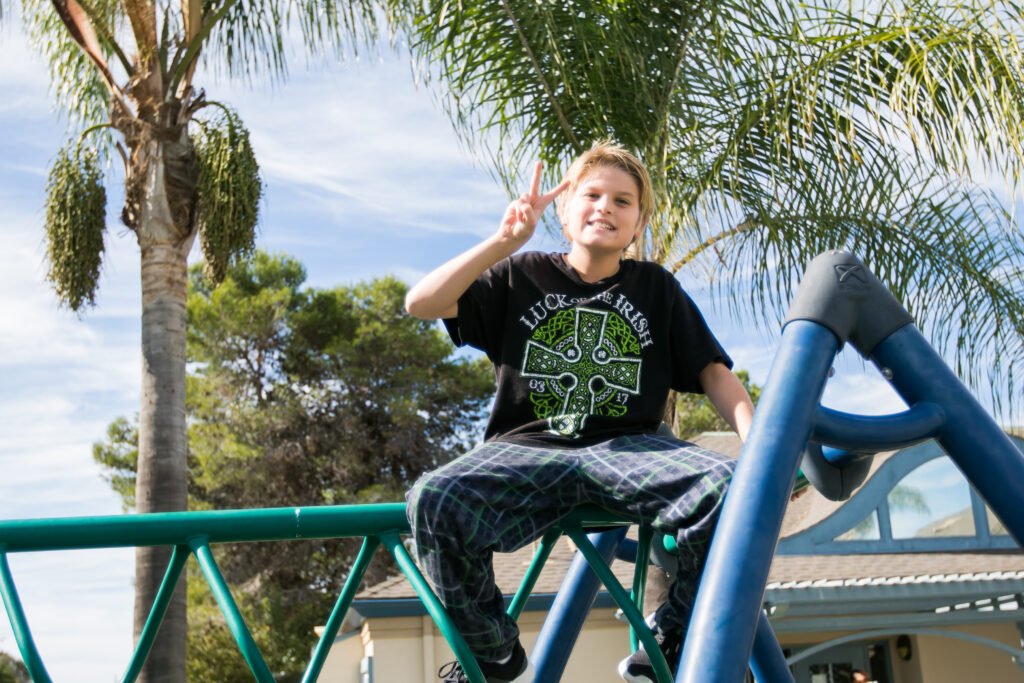By Ella Brazil
For Angelica Rivera, mental health work is more than a profession—it’s a personal calling rooted in both lived experience and a deep sense of purpose. As the SPOT Program Manager at the San Diego Center for Children, Angelica brings years of experience and empathy to her role, helping foster youth navigate complex challenges with the support of a compassionate community.
Her journey into social work began at 14 when she started working at Wediko Summer Program, a therapeutic residential camp serving children with social, emotional, and behavioral challenges. Inspired by the camp’s directors—all social workers—she began to see how her empathy could be a strength. While growing up in New York, she also volunteered in the playroom of the hospital where her parents worked and was again mentored by a social worker. Later, she spent nine years supporting court-involved youth through Esperanza, an alternative-to-incarceration program.
These formative experiences solidified her belief in the value of community-based mental health. “Traditional views of mental health focus on the individual,” Angelica explains, “but for our youth, especially those in foster care, mental health doesn’t have to be an individual challenge. It’s the community challenge. It’s not only up to the individual to change or address their own mental health, but also what their community can do to support and help.”
Angelica holds a Master’s in Social Work and previously served as both a therapist and Pathways Manager with the Center’s FFAST (Foster Family Agency Stabilization and Treatment) program. Today, at SPOT (San Pasqual Outpatient Treatment), she oversees care for youth ages 12-18 and maintains a small caseload herself. Her favorite part of the work? Being around the kids. “Just seeing kids be kids,” she says, whether they come for conversation or simply just for the snacks.
Each month, Angelica facilitates a social-emotional learning workshop integrated into an on-campus English class. Rather than traditional instruction, these Socratic-style discussions invite youth to reflect on their experiences and put words to feelings they already recognize. “I’m not teaching them something they don’t already know,” she says. “I’m helping them name it and understand it.”
Angelica recalls a standout story of a boy she’s supported since he first entered foster care. Initially avoidant and resistant to therapy, he eventually returned—on his own terms—and began to open up. Now a high school senior preparing for college, he not only accepts his past but actively seeks out support systems for foster youth. Angelica attributes this shift in part to the trust and consistency of their long-term relationship. “He realized therapy could be a mirror, helping him understand himself.”
His journey shows the value of consistency and trust. Angelica emphasizes that knowing a child across placements helps create continuity in a world where so much is uncertain. “Most kids don’t see therapy as helpful because it’s reactionary. It feels like punishment.” At SPOT, every child is assessed proactively, reframing therapy as support, not consequence.
When asked what she wishes more people understood about foster care, Angelica emphasized the importance of seeing the whole child—past, present, and future. “Loss of people is a trauma,” she says. “Youth in care are often expected to be resilient without the support systems their peers have.” More training, resources, and community conversations are vital—especially in schools, where foster youth may otherwise feel isolated.
This Mental Health Month, Angelica’s message is clear: “Mental health isn’t just an individual issue—it’s a community responsibility.” By creating responsive, inclusive environments in schools, homes, and neighborhoods, we can help foster youth feel seen, heard, and supported.
